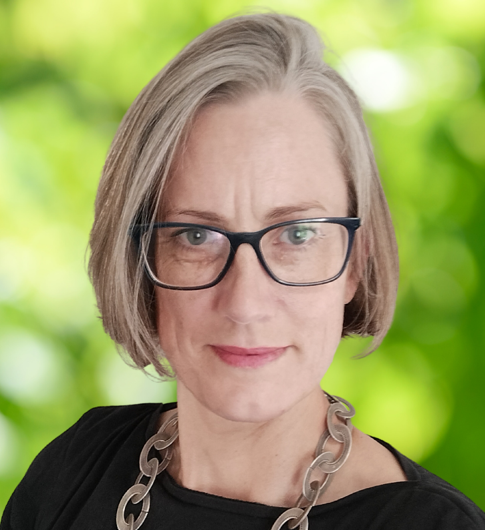Our Comms Spotlight for this week is passionate about policy and advocacy. Linda Gwada is the Head of Corporate Communications at Water Sector Trust Fund. Her background in International Relations presented her with one career path but she eventually chose to build her own way in Communications. In her interview with us, Linda shares some valuable resources that have helped her on her professional journey. She also highlights some challenges she’s faced as a professional and her approach to dealing with them.
Tell us how you began your career in Communications?
My journey into communications took an unconventional path, yet it has been deeply fulfilling. With a background in International Relations, I initially set my sights on a career in diplomacy and foreign affairs.
However, my then-manager recognised my strong storytelling abilities, public speaking skills, and keen interest in stakeholder engagement. These strengths naturally steered me towards policy communication and advocacy, ultimately leading me into the field of corporate communications.
I began my communications career as a Senior Communications Officer and gradually advanced through various roles in different organisations, refining my expertise in corporate communication, media relations, digital content creation, and advocacy.
Over time, I developed a strong capacity for strategic communication, leading high-impact campaigns such as the Water and Sanitation Conference.
I have also played a pivotal role in managing corporate and brand identities, enhancing organisational visibility, and developing donor and partner communication strategies for WaterFund’s donor-funded projects, supported by institutions such as the European Union, the Danish International Development Agency, the World Bank, and the German Development Bank.

What does a regular day look like for you as the Head of Corporate Communication at the Water Sector Trust Fund?
As the Head of Corporate Communications at Water Sector Trust Fund (WaterFund), my typical day involves engaging with internal staff to align ongoing communication efforts with the organisation’s mandate.
This includes collecting best practice and impact stories, updates on ongoing projects and programmes, and statements from management, which are then disseminated through a weekly publication called the WaterFund Situational Report (SITREP).
This report is shared with staff, stakeholders, and the public to promote WaterFund’s vision and mission. I also manage media relations by collating water sector news from various sources and sharing key updates with staff through internal communication channels.
Additionally, I engage with stakeholders across different platforms to enhance awareness of WaterFund’s mandate and oversee project branding initiatives to ensure adherence to corporate identity guidelines.
What’s the biggest challenge you’ve faced on your career journey, and how did you overcome it?
One of the biggest challenges I have faced in my career is the limited allocation of resources to communication and public relations within the public sector. Many organisations do not prioritise communication departments, and as a result, managers in these roles often do not have a seat at the decision-making table.
To overcome budget limitations, I have remained adaptable by optimising digital tools to showcase WaterFund’s impact and leveraging strategic partnerships, particularly with the media, to amplify our message.
Gaining recognition at the executive level required demonstrating the value of communication through data-driven results. By providing measurable insights on engagement and visibility, I was able to highlight the department’s contribution, ultimately strengthening its influence within the organisation’s leadership.
What tools and resources have been most helpful in your Communications career?
Comprehensive communication resource books and case studies have been invaluable in shaping my career. Learning from PR and communication theories, strategies, real-world applications, and global best practices has strengthened my ability to manage reputational risks and enhance my strategic thinking.
Books such as Exploring Public Relations by Ralph Tench and The Public Relations Handbook by Alison Theaker have served as excellent references. Networking and professional development have also played a crucial role.
Engaging with PR associations, such as the Public Relations Society of Kenya, and attending industry conferences have kept me updated on emerging trends, enabling me to craft impactful communication strategies. The use of artificial intelligence tools has further enhanced efficiency in task management and workflow coordination.
Platforms like Hootsuite have been instrumental in content scheduling, while Canva has been invaluable for creating compelling visual communication materials. These tools have significantly improved the execution of communication strategies, ensuring consistency and effectiveness.

What book or podcast would you recommend to other professionals and why?
I highly recommend “Atomic Habits” by James Clear and “The Diary of a CEO” podcast by Steven Bartlett to professionals looking to grow in their careers. Atomic Habits is a game-changer in understanding how small, consistent changes can lead to significant professional and personal growth.
In the communications field, where adaptability and strategy are key, the book offers insights on building productive habits, staying disciplined, and continuously refining one’s craft. The idea of “identity-based habits” particularly resonates—if you want to be a great communicator, start by adopting the habits of one.
The Diary of a CEO podcast is an excellent source of real-world business and leadership insights. Steven Bartlett’s interviews with top world executives, innovators, and various industry players provide actionable lessons on resilience, strategic thinking, and navigating challenges in leadership.
As someone managing corporate communication I find the candid conversations on leadership, storytelling, and personal brand positioning incredibly applicable in my career.
If you could give advice to yourself at the start of your career, what would it be?
If I could give advice to my younger self at the start of my career, it would be to embrace the journey of growth with patience and confidence. Much like Michelle Obama’s reflections in
Becoming, I would remind myself that success is not a straight path but a continuous process of learning, evolving, and stepping outside of comfort zones. I would encourage myself to trust my voice, even in spaces where it feels like I don’t belong, and to cultivate resilience in the face of challenges.





